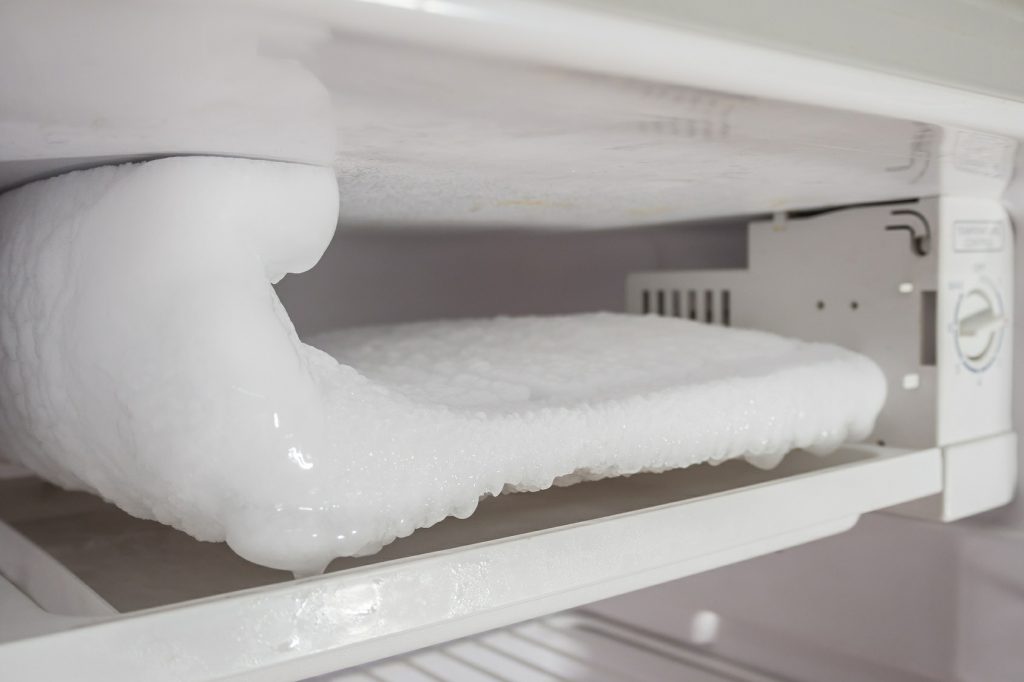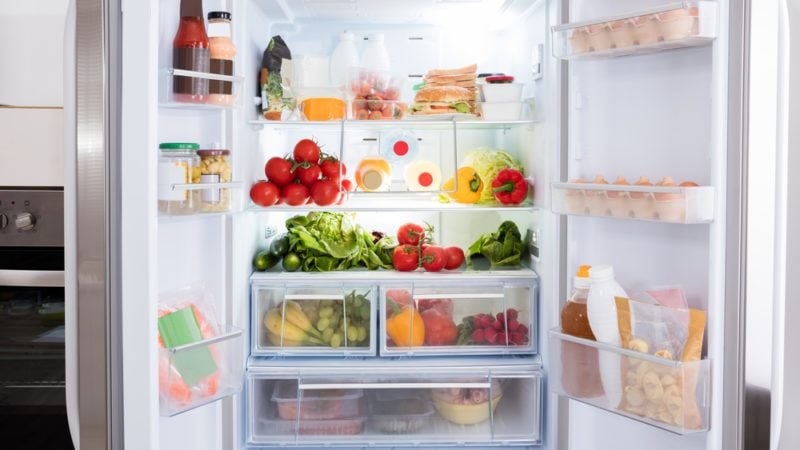A refrigerator is supposed to keep your food and drinks cold, but not frozen. However, sometimes you may notice that your refrigerator is freezing up, meaning that ice is forming inside the fridge or freezer compartment, or on the coils or walls. This can affect the performance and efficiency of your refrigerator, as well as damage your food and drinks.
But what causes a refrigerator to freeze up? And how can you prevent or fix it? In this post, we’ll explain the common reasons why a refrigerator freezes up, and what you can do to solve the problem.
The main causes of a refrigerator freezing up are insufficient air circulation, temperature set too low, broken seal, and air duct in the wrong spot. These causes can make the refrigerator overwork to maintain the cooling, or impede the evaporation process that prevents ice formation.
Insufficient Air Circulation
One common cause of a freezing refrigerator is insufficient air circulation. When the cold air cannot circulate properly, it tends to accumulate in certain areas, leading to ice formation. This can occur due to items blocking the air vents or overcrowding in the refrigerator.
To prevent or fix this problem, you should:
- Check the air vents inside the fridge or freezer and make sure they are not blocked by food containers, bags, or other items.
- Rearrange the items inside the fridge or freezer and leave some space between them to allow air flow.
- Avoid opening and closing the fridge or freezer door too frequently or for too long, as this can disrupt the air circulation and let warm air in.
- Defrost the fridge or freezer if there is too much ice buildup on the walls or coils.

Temperature Set Too Low
Another common cause of a freezing refrigerator is temperature set too low. When the temperature is set too low, the refrigerator will run longer and colder than necessary, resulting in excessive cooling and ice formation. This can also waste energy and increase your electricity bill.
To prevent or fix this problem, you should:
- Check the temperature setting on your refrigerator’s control panel and adjust it according to your needs and preferences. The ideal temperature range for a fridge is between 37°F and 40°F (3°C and 4°C), and for a freezer is between 0°F and 5°F (-18°C and -15°C).
- Use a thermometer to measure the actual temperature inside the fridge or freezer and compare it with the setting. If there is a discrepancy, you may need to calibrate your thermostat or replace it if it’s faulty.
- Avoid placing hot or warm food or drinks inside the fridge or freezer, as this can raise the temperature and make the refrigerator work harder to cool them down.

Broken Seal
A broken seal is another common cause of a freezing refrigerator. The seal is the rubber gasket that surrounds the fridge or freezer door and creates an airtight closure. A broken seal can let cold air escape and warm air enter, causing condensation and ice formation. A broken seal can also affect the door closure and sealing, which can lead to further cold air loss and food spoilage.
To prevent or fix this problem, you should:
- Check the seal for any cracks, tears, gaps, or wear and tear. You can also perform a dollar bill test by closing the door on a dollar bill and trying to pull it out. If it comes out easily, your seal is loose.
- Clean the seal with a damp cloth and mild soap to remove any dirt, dust, or debris that may interfere with its function.
- Replace the seal if it’s damaged or worn out. You can buy a new seal online or from an appliance store, or contact a professional technician for assistance.
Air Duct In The Wrong Spot
An air duct in the wrong spot is another possible cause of a freezing refrigerator. The air duct is the opening that allows cold air from the freezer to enter the fridge compartment. If the air duct is in the wrong spot, it can direct cold air directly onto certain areas of the fridge, such as shelves or drawers, causing them to freeze.
To prevent or fix this problem, you should:
- Check where your air duct is located inside your fridge compartment. It’s usually at the back center of the top shelf.
- Avoid placing items directly under or in front of the air duct, as they may block or divert the cold air flow.
- Adjust your shelves or drawers if possible to create more space between them and the air duct.
- Use plastic containers or bags to store your food items that are prone to freezing, such as fruits, vegetables, eggs, or dairy products.

FAQs About Refrigerator Freezing Up
Q: How do I defrost my refrigerator?
A: To defrost your refrigerator, you should:
- Unplug your refrigerator from its power source and remove all food items from it.
- Place towels or trays under the fridge or freezer to catch any water or ice that may drip or melt.
- Leave the fridge or freezer door open and let the ice melt naturally, or use a hair dryer or a fan to speed up the process. Do not use any sharp or metal tools to scrape or chip the ice, as this can damage your refrigerator.
- Wipe the inside of the fridge or freezer with a damp cloth and dry it thoroughly.
- Plug in your refrigerator and return your food items to it.
Q: How often do I need to defrost my refrigerator?
A: The frequency of defrosting your refrigerator depends on several factors, such as the type and model of your refrigerator, the temperature and humidity level in your kitchen, and your usage habits. Generally, you should defrost your refrigerator when there is more than 0.25 inches (6 mm) of ice buildup on the walls or coils.
Q: How can I prevent my refrigerator from freezing up?
A: To prevent your refrigerator from freezing up, you should:
- Check and adjust the level of your refrigerator to ensure proper door closure and sealing.
- Check and clean the coils at the back or bottom of your refrigerator to improve its efficiency and performance.
- Check and replace the water filter if it’s clogged or dirty, as this can affect the water flow and pressure in your refrigerator.
- Check and replace the fan motor if it’s noisy or not working, as this can affect the air circulation in your refrigerator.
Conclusion
A refrigerator freezing up is a common problem that can have various causes and consequences. By understanding what causes a refrigerator to freeze up, and how to prevent or fix it, you can keep your refrigerator in good condition and enjoy fresh and cold food and drinks.



